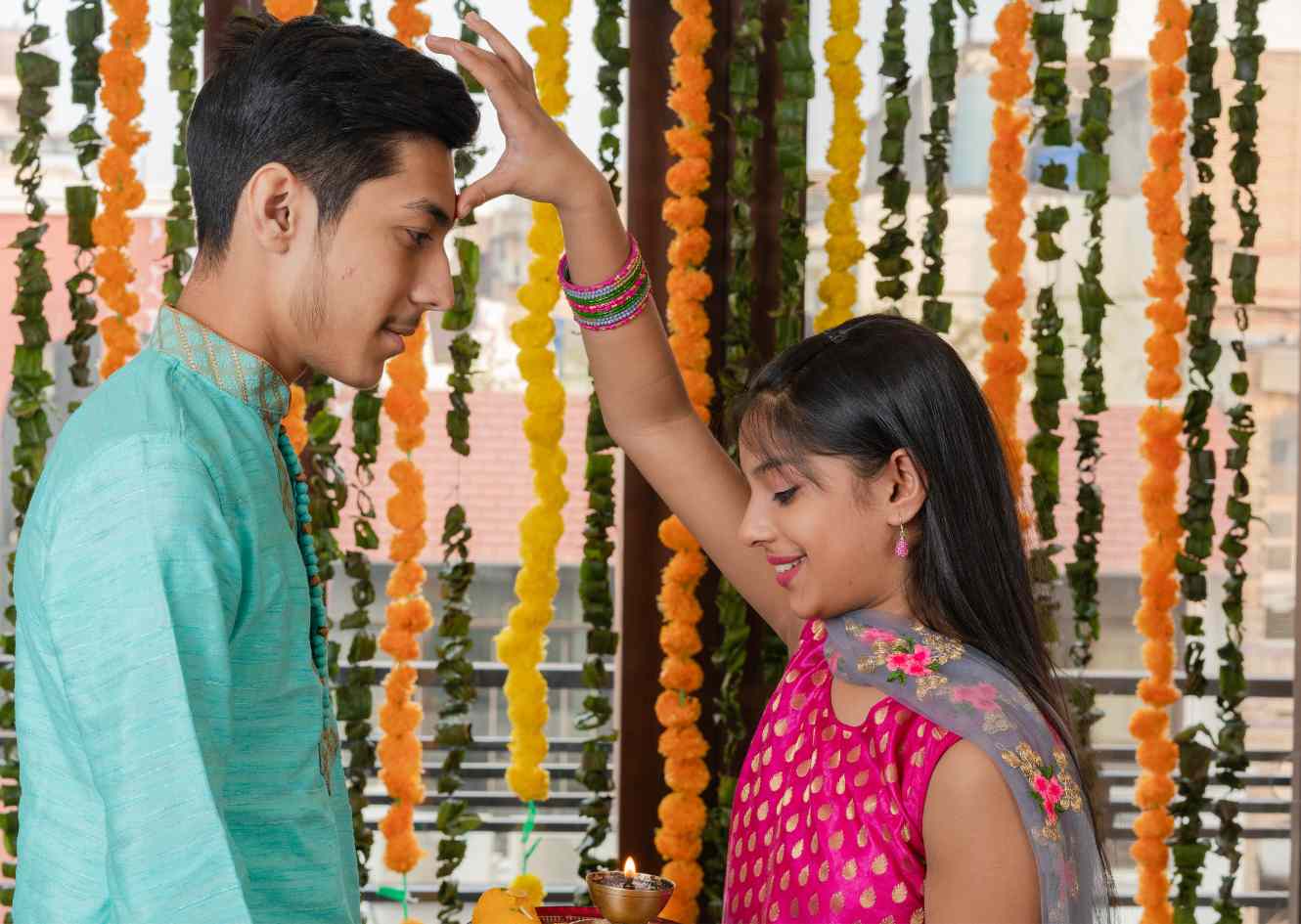Hindu Festivals Calendar
———————————–

- This event has passed.
Bhai Dooj
November 14, 2023

Bhai Dooj, also known as Bhai Tika, Bhai Phonta, and Yama Dwitiya in different parts of India, is a popular Hindu festival celebrating the bond between brothers and sisters. The name ‘Bhai Dooj’ translates to ‘brother’s second’, referring to the festival’s occurrence on the second day after the new moon in the Hindu month of Kartika.
This festival is celebrated two days after Diwali, marking the end of the five-day-long festival of lights. Like Raksha Bandhan, another festival celebrating the sibling bond, Bhai Dooj underscores the significance of familial ties in Indian culture. However, while Raksha Bandhan centers around the brother’s commitment to protecting his sister, Bhai Dooj celebrates the brother’s well-being and longevity, wished for by his sister.
The rituals of Bhai Dooj are simple yet deeply symbolic. On this day, sisters apply a vermilion (tilak or teeka) on their brothers’ foreheads. This tilak, made of rice, sandalwood paste, and yogurt, is a mark of the sisters’ prayers for their brothers’ long lives. Brothers, in return, give gifts as a token of their love and vow to protect their sisters. The ceremony is usually followed by a festive meal and the narration of tales related to this day.
The tradition of Bhai Dooj traces back to mythology, with several legends associated with it. The most popular legend revolves around Yama, the God of Death, and his sister, Yamuna. It is believed that Yama visited his sister Yamuna on this day, who welcomed him by applying a tilak on his forehead. Pleased, Yama granted her a boon that whoever received a tilak from his sister on this day would never fear death. This is why the day is also known as ‘Yama Dwitiya.’
Another legend involves Lord Krishna, who visited his sister Subhadra after killing the demon Narakasura. Subhadra welcomed him with sweets, flowers, and a tilak, marking the beginning of the Bhai Dooj tradition.
Bhai Dooj, thus, has deep roots in Indian mythology and cultural practices. It is a testament to the importance of familial bonds in Indian society. The festival brings families together, strengthening siblings’ bonds of love and duty.
The beauty of Bhai Dooj lies in its simplicity. The festival doesn’t involve elaborate rituals but is powerful in its messaging and sentiment. The exchange of gifts is not merely a transaction but a symbol of love, respect, and mutual responsibility between brothers and sisters.
In recent times, Bhai Dooj has also adapted to societal changes. With changing gender dynamics and the blurring of gender roles, the festival has become a celebration of sibling love and mutual respect, transcending the traditional protector-protected relationship.
Bhai Dooj, therefore, is a celebration of love, affection, respect, and the unbreakable bond between siblings. It brings forth the inherent values of Indian society – respect for familial relationships, mutual protection, and the importance of rituals in acknowledging and celebrating these bonds. It’s a day when siblings, regardless of their everyday fights and squabbles, come together to express their unconditional love and camaraderie, upholding the spirit of family and togetherness.
Leave a Reply
You must be logged in to post a comment.